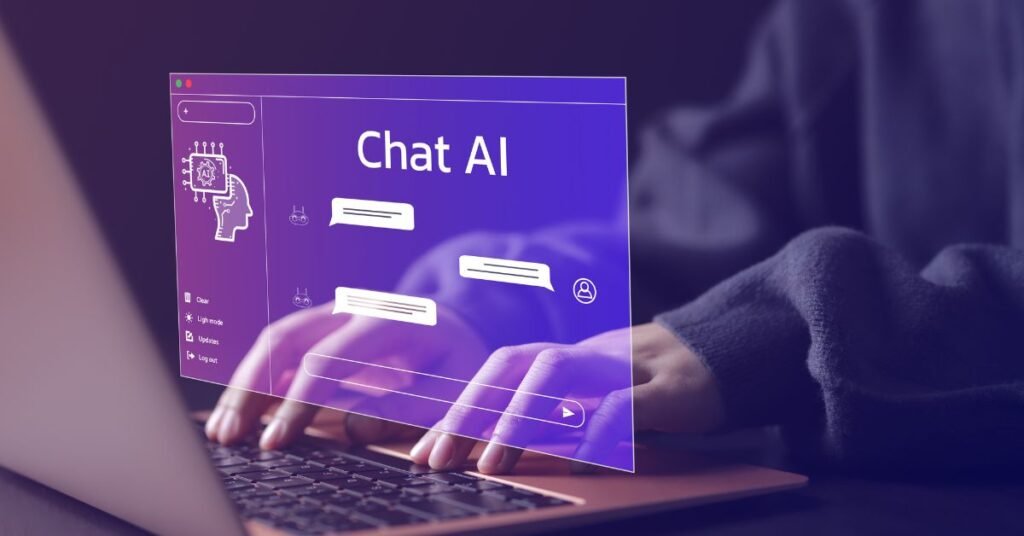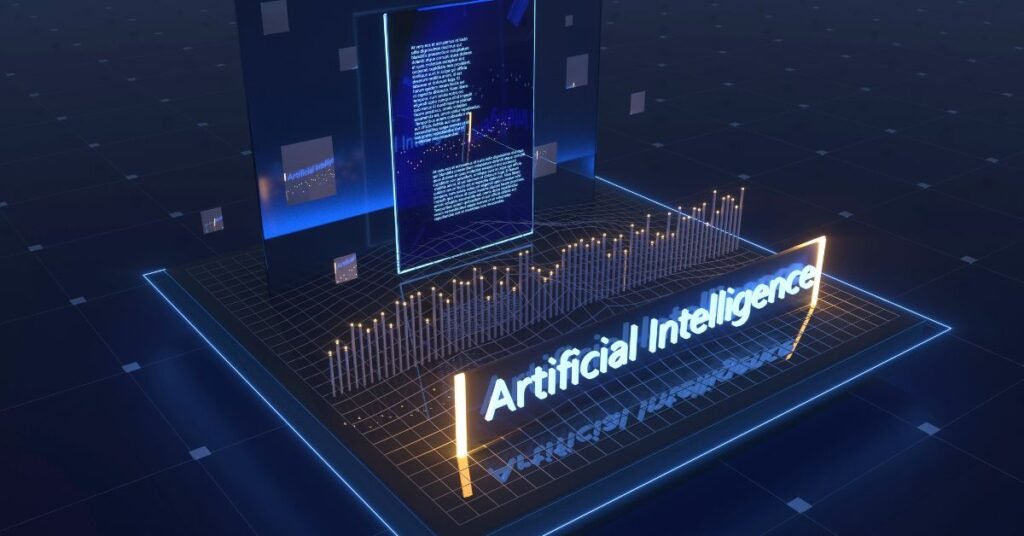Artificial Intelligence Services are reshaping industries in 2025, from healthcare and finance to education and logistics.
Businesses are using AI to automate tasks, personalize experiences, and unlock data-driven insights. This guide explores how companies can adapt to AI-driven changes, what opportunities lie ahead, and why both students and professionals should prepare for an AI-powered future.
Think about the last time you asked a digital assistant to set a reminder, used a recommendation on Netflix, or got real-time navigation in traffic.
All of that is powered by Artificial Intelligence Services. Now imagine these services running businesses, making decisions, and creating entirely new ways of working.
That’s where we are in 2025: AI has moved from being a “future technology” to an essential business tool.
What Are Artificial Intelligence Services?
Artificial Intelligence Services are tools, platforms, and solutions that use machine learning, natural language processing, and computer vision to solve problems and improve decision-making.
Instead of replacing humans, these services enhance efficiency, reduce errors, and allow people to focus on higher-value work.

In 2025, they will no longer be limited to tech companies. Retailers, healthcare providers, educators, and small businesses are all embracing AI to improve their operations.
Key Areas Where Artificial Intelligence Services Are Making an Impact
1. Healthcare
AI-powered services are transforming diagnostics, treatment, and patient care. From detecting diseases early using medical imaging to predicting patient needs through data analysis, AI is saving lives and cutting costs. Telehealth platforms are also using AI chatbots for faster consultations.
2. Finance
Banks and investment firms rely on AI for fraud detection, risk analysis, and personalized banking experiences. Automated trading systems now adjust portfolios in real-time, while AI-driven financial advisors are more accessible to everyday users.
3. Retail
From online shopping to physical stores, AI is behind personalized recommendations, dynamic pricing, and supply chain optimization. Retailers use AI-powered chatbots for customer support, reducing response time and improving satisfaction.
4. Manufacturing and Logistics
Artificial Intelligence Services are helping companies predict machine breakdowns, optimize production schedules, and automate warehouse operations. In logistics, AI systems analyze routes, weather, and traffic to cut delivery times.
5. Education
AI-driven tutoring platforms adjust to each student’s learning style, making education more personalized. Teachers use AI analytics to identify where students struggle and provide better support.
6. Marketing
Businesses are using AI tools to understand customer behavior, create targeted campaigns, and generate content. Social media strategies are increasingly driven by AI predictions.
The Benefits of Artificial Intelligence Services
- Efficiency: Automating repetitive tasks saves time and resources.
- Cost Savings: Companies reduce overhead by streamlining processes.
- Accuracy: AI reduces human error in tasks like data entry and analysis.
- Personalization: Customers receive tailored experiences, boosting loyalty.
- Innovation: Businesses can experiment with new models that weren’t possible before.
Challenges and Ethical Considerations
While Artificial Intelligence Services offer incredible benefits, challenges remain.
- Data Privacy: AI relies on massive amounts of data, raising security concerns.
- Bias: If the data used to train AI is biased, decisions may be unfair.
- Job Displacement: Some roles are being automated, requiring reskilling.
- Regulation: Governments are still figuring out how to regulate AI responsibly.
Businesses must adopt ethical frameworks and prioritize transparency when implementing AI solutions.

How Businesses Can Adapt to AI Transformation
- Start Small: Adopt AI for specific tasks like chatbots or automated analytics.
- Invest in Training: Ensure employees understand how to use AI tools effectively.
- Use Cloud AI Services: Platforms like Microsoft Azure, AWS, and Google Cloud offer pre-built AI solutions that are easy to integrate.
- Focus on Customer Experience: The real value of AI comes when customers feel the benefits.
The Future of Artificial Intelligence Services in 2025 and Beyond
Artificial Intelligence Services will keep evolving, becoming more human-like in their ability to reason, predict, and respond. By 2030, we could see:
- AI companions for mental health and learning support.
- Fully autonomous supply chains.
- Widespread use of AI in government services.
- Hyper-personalized experiences in every industry.
Businesses that embrace these services early will be better positioned to compete.
Conclusion and Recommendation
Artificial Intelligence Services are no longer futuristic ideas. They are practical tools shaping how we live and work in 2025.
From healthcare to retail, finance to education, AI is helping industries operate smarter and more efficiently.
For students, now is the perfect time to study AI-related fields, whether in data science, machine learning, or business applications. For professionals, reskilling is key.
Learning to work alongside AI will not only protect your career but also make you a leader in tomorrow’s workplace.
If you want to stay relevant, think of AI as a partner, not a replacement. The more you understand how Artificial Intelligence Services work, the more opportunities you’ll have to grow.
Also Read: Artificial Intelligence Stocks 2025: Top Picks for Investors
Integration of Artificial Intelligence in the medical services quality management https://t.co/dTW26QoO3e
— FromDev (@FromDev) August 25, 2025

Abdul Basit is a US-based tech writer who covers Apple innovations, Tesla’s EV growth, AI breakthroughs, smartphone trends, and app reviews for global readers.
